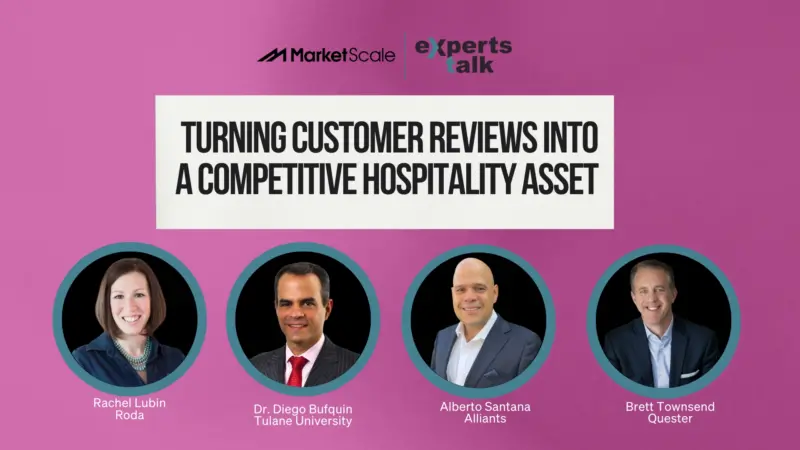5 Ways Learning Management Systems Embedded in Your PMS Help Jump-Start Onboarding

Hoteliers planning on new hires and seasonal hires must focus on shorter lessons, interactive experiences, and providing accessible learning tools to workers.
By Warren Dehan
Independent hoteliers are looking for impactful ways to train tomorrow’s workers – and fast. Hotel leaders must find ways to shorten training time and improve worker decision-making, starting with how they interface with on-property technology. The hotel property-management system typically has the most significant learning curve for new hotel workers, and it’s up to PMS developers to design systems that help new employees easily acclimate to their property’s ecosystem. In this environment, learning management systems and the freedom they provide to new learners have come into play.
Learning management systems come in many forms, from e-learning tools to instructional videos, but the key to their success is having access to data that helps inform managers of a worker’s progress and helps them improve naturally over time. Here are five essential features independent hoteliers should look for in an industry-leading learning management system:
1. Focus on the User Base
For training tools to be effective, they must address the needs of the user base likely to be most impacted when learning new skills. In today’s hospitality industry and at independent hotels, this demographic typically consists of young adult learners. To reach this segment, the user experience of a new technology must begin with an engaging experience for the user. The most effective PMS to achieve this effect focuses on simple instructions, efficient use of menus, and appealing visual design elements.
The next wave of hospitality professionals uses technology more in their daily lives and expects to leverage these tools professionally as well. Young adult learners thrive in a multimedia environment. They may benefit from access to gamification tied to task completion, notifications for new training lessons, or certifications when completing a course. Doing so maintains continuity with how they have been learning up until now and encourages continued curiosity and personal development among hotel workers.
2. Custom Learning Paths
No two hotels are alike, which should be reflected in every property’s training material. Learning management systems that allow hotel leaders to customize learning paths or the courses they take can help operators build a team of skilled professionals who quickly know the ins and outs of their property needs. When operators can set clear boundaries for different roles within training and e-learning tools, team members will better understand their role on property. Custom learning plans are so effective they can help support an entire property’s organizational strategy beyond technology or the PMS.
3. Accessibility
The more we learn about training, the clearer it becomes that everyone absorbs information at their own pace. Providing access to e-learning tools over a browser-based link can be an impactful way of supporting learning whenever workers have a break or even after hours when their minds are relaxed. Mobile learning should be accessible anytime, anywhere, on any device. The fewer learning barriers between workers, such as those with laptops and those who prefer to work on a phone, the better. It also conveys that workers are supported in setting their learning schedule, providing greater autonomy overall.
4. Interactive Assessments
Feedback from hotel management staff is always valuable, but if e-learning tools can provide this feedback directly to hotel workers in advance, all the better. Access to interactive or immediate assessments over e-learning channels can build knowledge over time in an environment consistently supportive of learning and experimentation. Additionally, managers can be alerted based on team member access to e-learning tools, allowing them to be recognized for their diligence.
5. Reporting
Property managers often only see a part of their workers’ story. They are frequently unaware of all their staff’s struggles or successes, and what goes unsaid can often cause the most discord. With access to learning path reporting tools, property managers can see how their staff perform across lessons. This insight allows property managers to examine trends to gain insight into on-property challenges or areas they need more information on.
These elements are essential for independent hoteliers, mainly as operators focus more on hiring workers from outside the hospitality industry. We as an industry must focus on shorter lessons, smaller chunks of information, and providing accessible learning tools to workers whenever they choose to access them. Most importantly, we must remove any remaining barriers to accessing training information and continue supporting the growth of those with a hospitality mindset across our industry.

About the Author
Warren Dehan is the President of Maestro, the preferred Web Browser based cloud and on-premises all-in-one PMS solution for independent hotels, luxury resorts, conference centers, vacation rentals, and multi-property groups. Maestro’s enterprise system offers embedded payments and 20+ integrated modules on a single database, including mobile and contact free apps to increase profitability, drive direct bookings, centralize operations, and enable operators to engage guests with a personalized and safe experience. Maestro’s Support Service provides unparalleled 24/7 North American based live support and education services.








